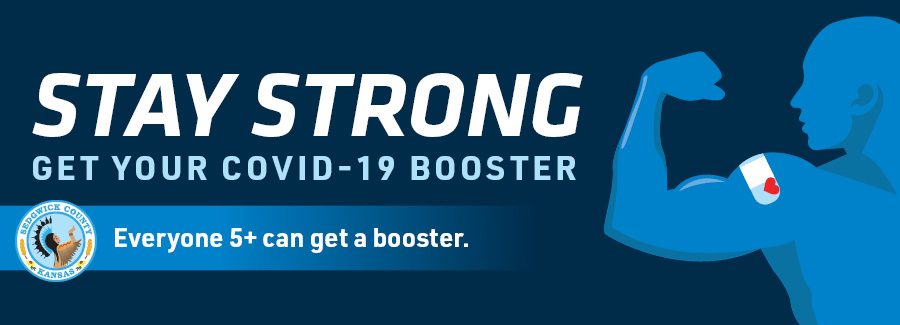
Why should I get a booster?
With all vaccines, immunity lessens as time goes on. Months after receiving your second dose of vaccine, your immunity may not be as effective in preventing severe illness.
- Studies show that after getting vaccinated against COVID-19, protection against the virus and the ability to prevent infection with variants may decrease over time and due to changes in the variants.
- The Omicron variant has been shown to be highly transmissible and can evade immunity in those who are fully vaccinated or who were infected with early variants.
- Studies have also shown that two doses may not be enough to offer protection against variants like Omicron with two shots only being around 35% effective against infection.
- However, tests have shown a booster increases people's levels of virus-fighting antibodies by 25-fold compared to the original two-dose regimen.
- A study by the CDC showed that individuals 50-64 years old that were fully vaccinated and had received a booster were 46x less likely to be hospitalized due to COVID-19.
Be getting the booster, your immunity can stay strong and protect against the Omicron variant and potential future variants.
Who can get a booster?
The CDC and FDA recommend everyone over the age of 5 get a booster.
When should I receive my booster dose?
Individuals 5+ years should receive the updated Pfizer booster 2 months after completing a primary series of COVID-19 vaccine.
Individuals 18+ should receive a Novavax booster if they have completed a primary series at least 6 months ago, have received no previous boosters and cannot or will not get the bivalent booster.
COVID-19 Vaccine Dosage Schedule
Additional Dose Information for Individuals with Weakened Immune Systems
Who is this for?
People 5+ with certain conditions and treatments (examples below).
What other eligibility criteria?
Two doses of Pfizer or Moderna with the second dose at least 28 days prior to the additional dose, or a single dose of Johnson & Johnson 28 days prior to the additional dose.
People who can receive an additional dose have one or more of the following conditions or treatments:
- People who have cancer or are taking cancer-treating drugs
- People who have had organ transplants who are taking immunosuppressive drugs
- People who have diseases of the immune system, most of these are genetic conditions
- People who are taking drugs to treat serious inflammatory conditions like rheumatoid arthritis, psoriatic arthritis, plaque psoriasis, ankylosing spondylitis, ulcerative colitis and Crohn's disease
- People who have advanced or untreated HIV
The conditions do not include those who are pregnant, residents of adult care homes, or those with chronic medical conditions such as diabetes and COPD unless they have a condition or treatment listed above.
Booster Doses
- Children 5 - 11 years old who received an additional dose of Pfizer or Moderna vaccine are eligible to receive a booster dose (fourth dose) of Pfizer or Moderna vaccine at least three months after receiving their additional dose.
Summary schedule of when additional doses and booster doses can be administered shown below:
| Primary Vaccination | Age Group | Number of Primary and/or Additional Vaccine Doses | Number of Booster Doses | Interval Between 1st and 2nd Dose | Interval Between 2nd and 3rd Dose | Interval Between 3rd Dose and Booster |
| Pfizer | 6 months - 4 years | 3 | N/A | 3 weeks | ≥8 weeks | N/A |
| Pfizer | 5-11 years | 3 | 1 | 21 days | ≥28 days | ≥3 months |
| Pfizer | ≥12 years | 3 | 1 | 21 days | ≥28 days | ≥2 months |
| Moderna | 6 months -4 years | 3 | N/A | 4 weeks | ≥4 weeks | N/A |
| Moderna | 5 - 11 years | 3 | N/A | 4 weeks | ≥4 weeks | N/A |
| Moderna | ≥12 years | 3 | 1 | 28 days | ≥28 days | ≥2 months |
| Johnson & Johnson | ≥18 years | 1 J&J, followed by 1 mRNA | 1 | ≥28 days | ≥2 months | N/A |
| Novavax | ≥12 years | 2 | 1 | 3 weeks | ≥2 months | N/A |